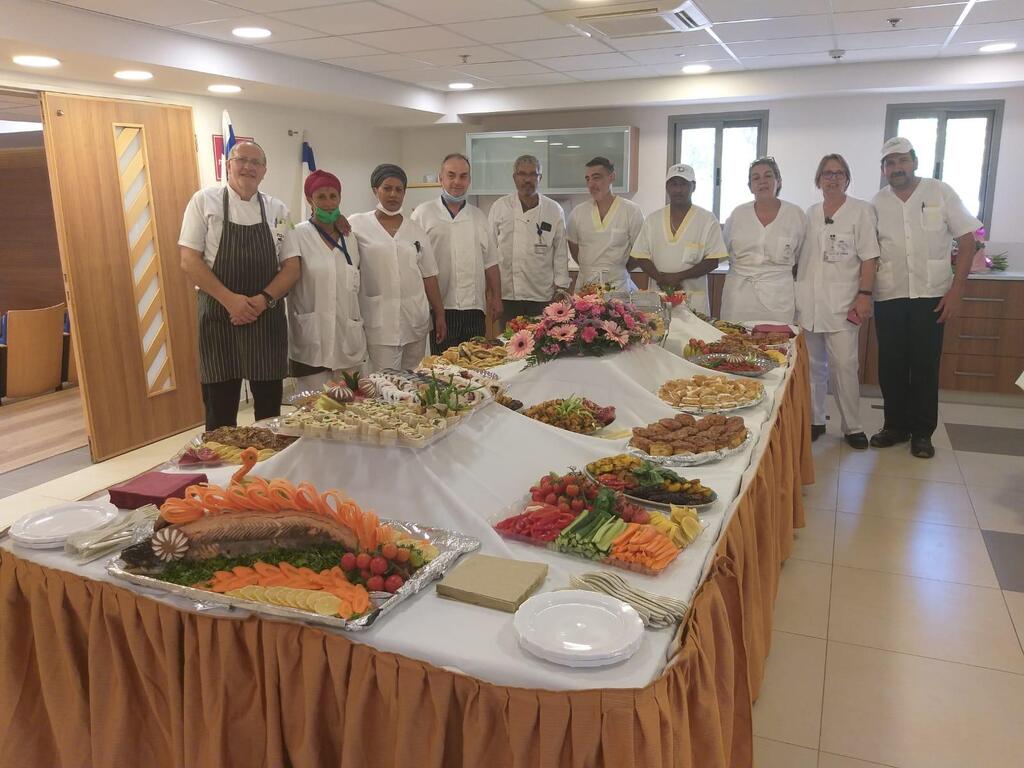Getting your Trinity Audio player ready...
The Jewish high holiday season is a time of renewal, the start of a new year and the beginning of fall and with it come gatherings around meals and a lot of food. Many family ge- togethers are hosted by the grandparents and while they always spoil us, they do not always take care of themselves.
Read more:
What should senior citizens eat during the holidays?
Daily dietary principles should be kept even during the holiday season. The best recommendation would be a Mediterranean diet which is based on a variety of vegetables, fruits and cereal. Quality protein which is found in legumes, eggs, dairy, non-fattening meats and fish is critical for the health of older people.
What foods are both healthy and tasty?
Family dinners during the holidays are an excellent opportunity to cook homemade food. Processed food contains high concentrations of salt which cause high blood pressure and heart and liver diseases. Homemade meals also have less oil, margarine, butter and mayonnaise. Instead of salt, we can use spices and use different vegetables to create diverse consistencies.
3 View gallery


Kitchen staff in Doctor Shmuel Geriatric department
(Photo: Doctor Shmuel Spokesperson)
People above the age of 65 who suffer from heart, liver diseases, blood disorders and diabetes should decrease alcohol consumption. People who take medication should abstain from alcohol indefinitely.
How can we avoid the feeling of heaviness after a holiday meal?
We should always listen to our bodies. If we are full, we should take a break and rest. Most likely there will be leftovers after the holiday so we would have the chance to try dishes we did not get to, during the meal.
Should we avoid eating anything before the holiday feast to allow ourselves to eat to our heart's content?
Our bodies need nourishment during waking hours and therefore one should not eat just once a day but spread out the meals to stay healthy. Before festive meals, we can eat smaller amounts so we can eat more of the special dishes. Even if the meal doesn't contain sugar, it can disrupt the diabetic balance so it is best to maintain a diet of quality protein, vegetables and water to guarantee intestinal balance.
What do we drink?
Water. It is advised to refrain from drinking sweetened drinks, including natural juices. I would not recommend 'diet' drinks as well. For flavor, we can add spearmint, lemon wedges, cucumber slices and even sugar-free tea extracts to water. Carbonated drinks are ill-advised for those who suffer from heartburn.
How about alcohol?
As we know, alcohol should be consumed responsibly. From a health perspective, a drink or two are acceptable. People older than 65 who suffer from chronic diseases should exercise caution and consume less alcohol. If you take any medication, it is best you refrain from alcohol consumption.
It's important to remember that drinking alcohol increases urination so drinking water along with alcohol is important to prevent dehydration, headaches and other symptoms.
Finally, don't forget to engage in physical activity outside in sunlight. It is important for mental function for all ages, but especially for the older generation.



